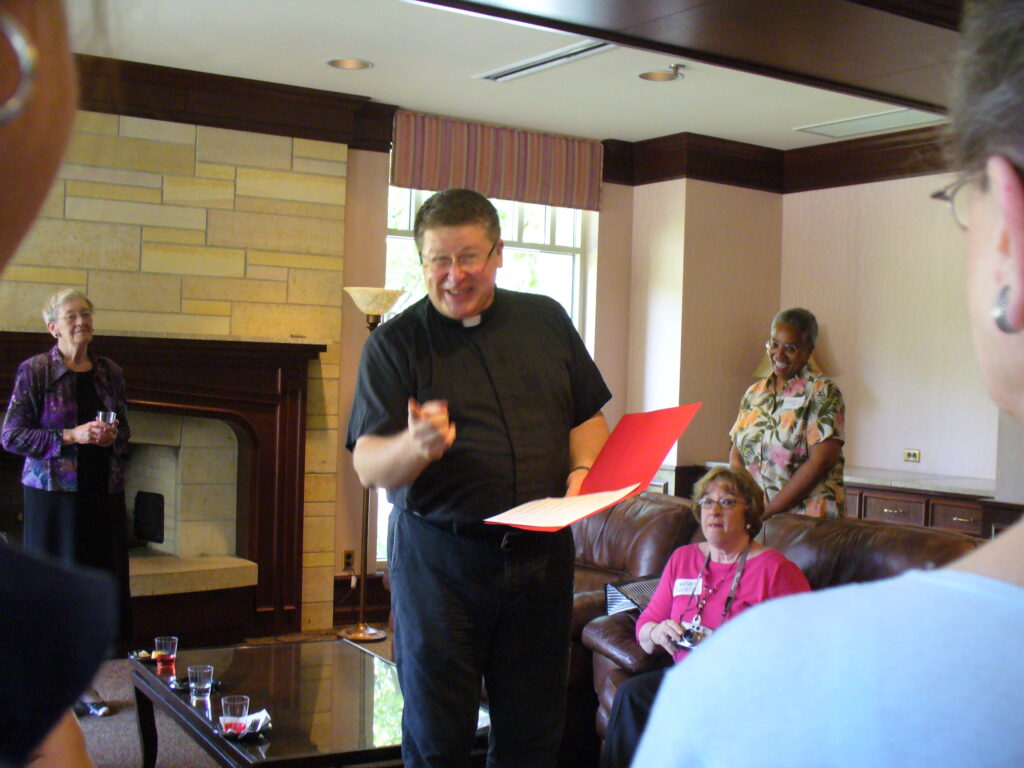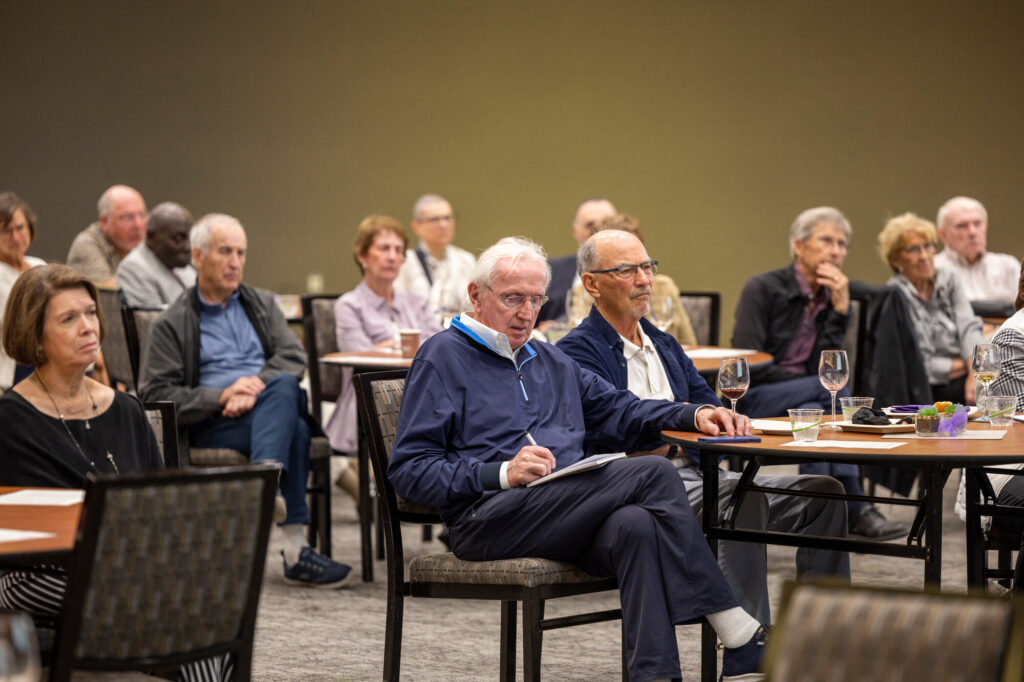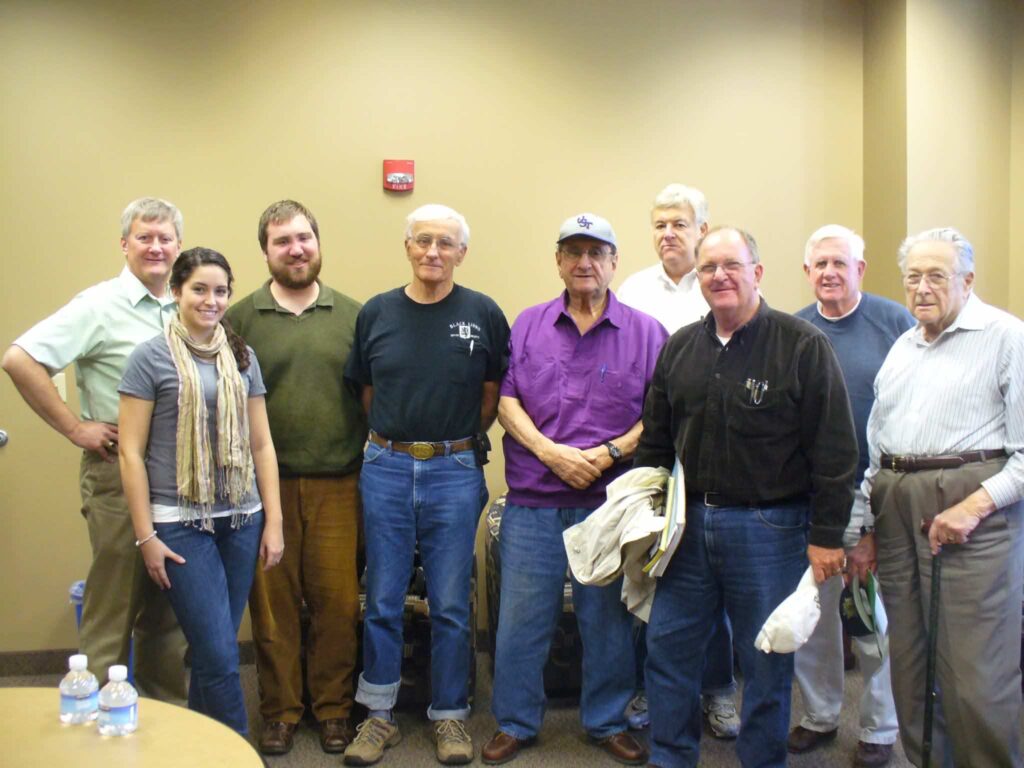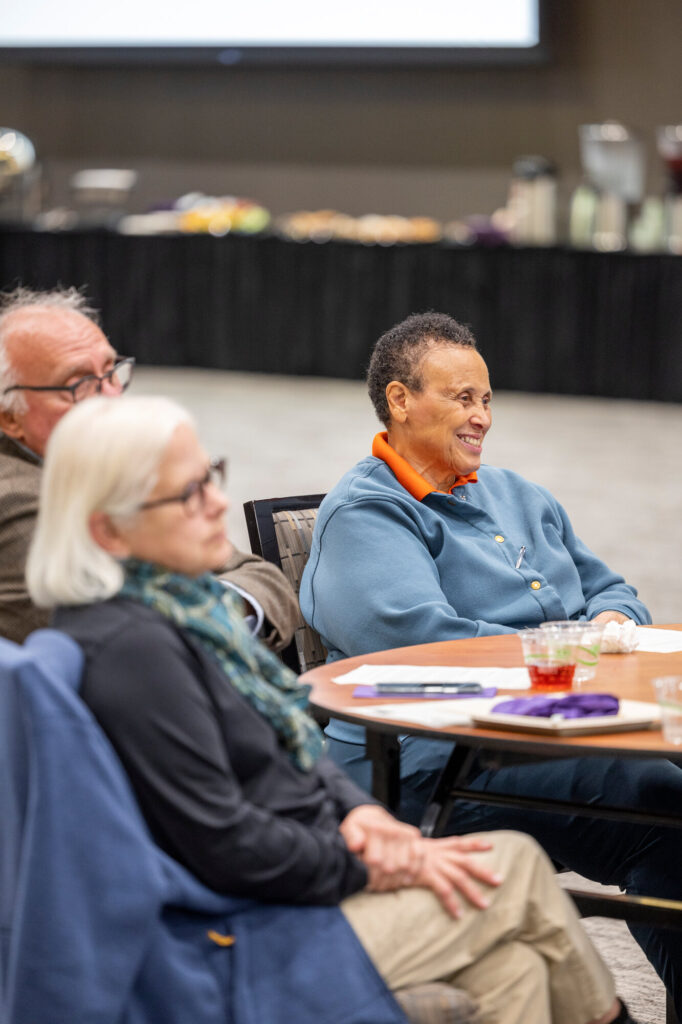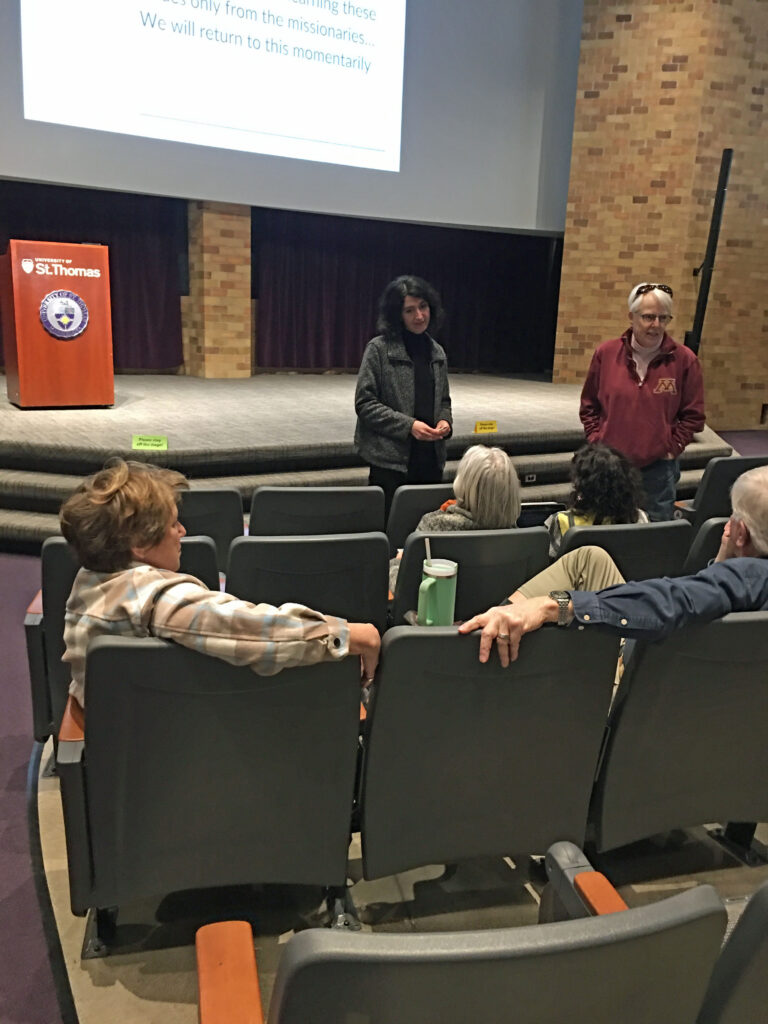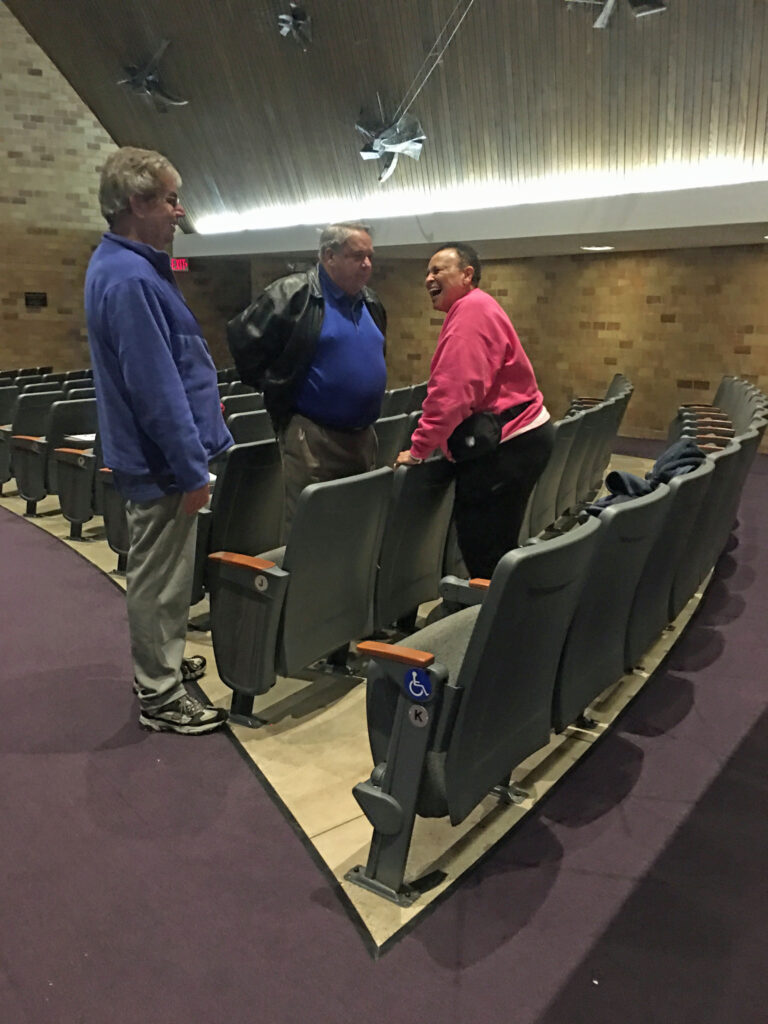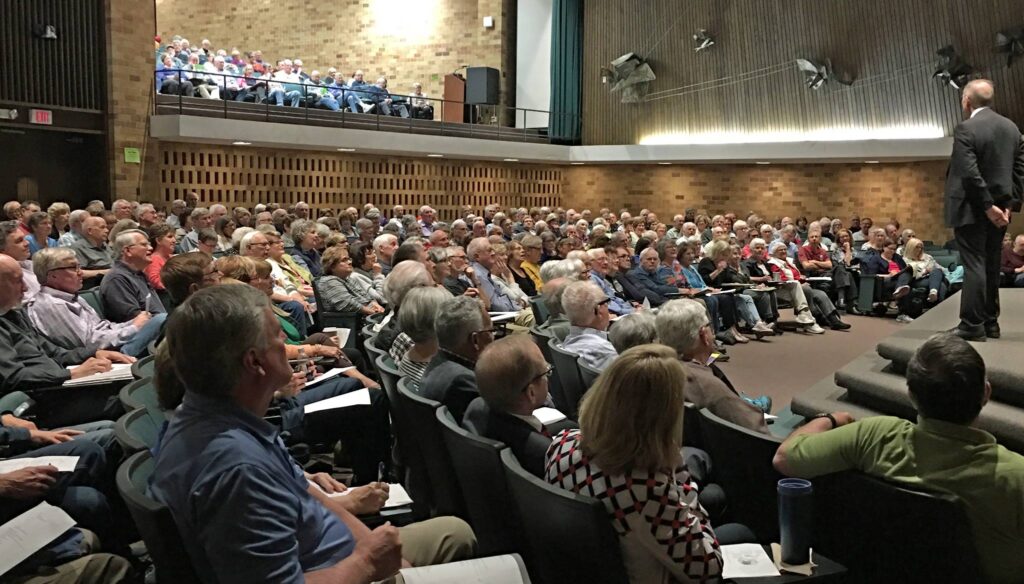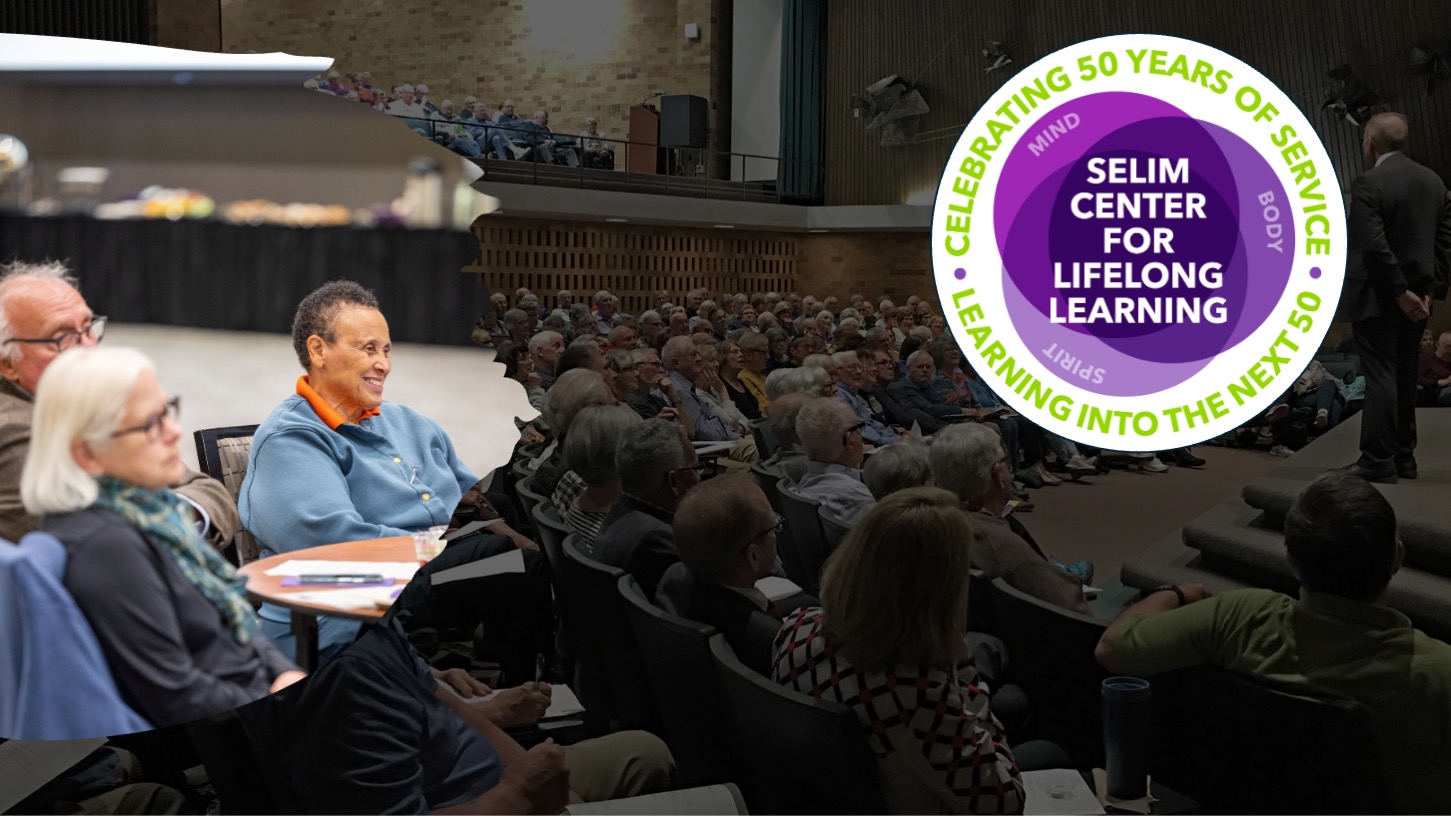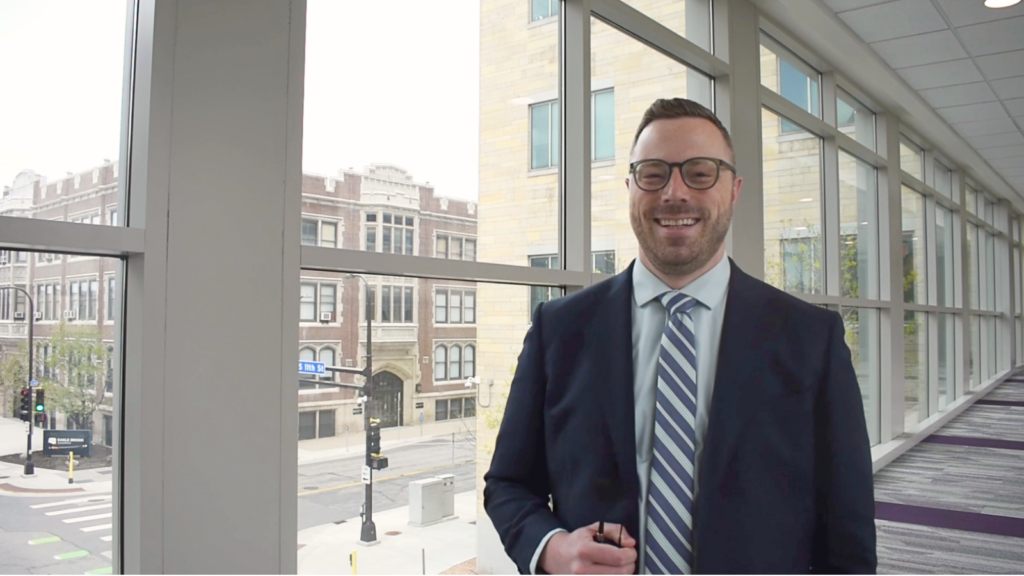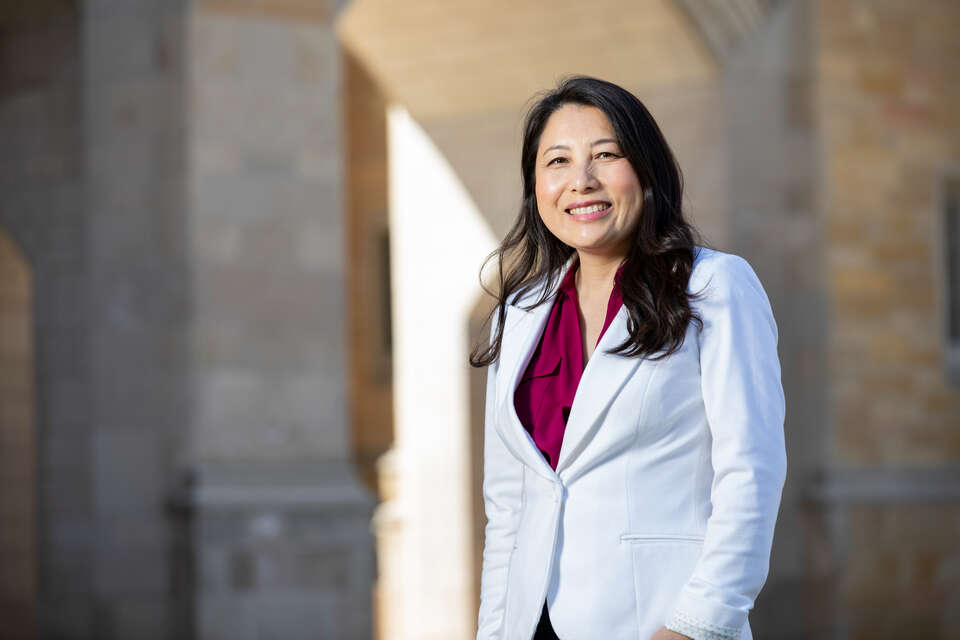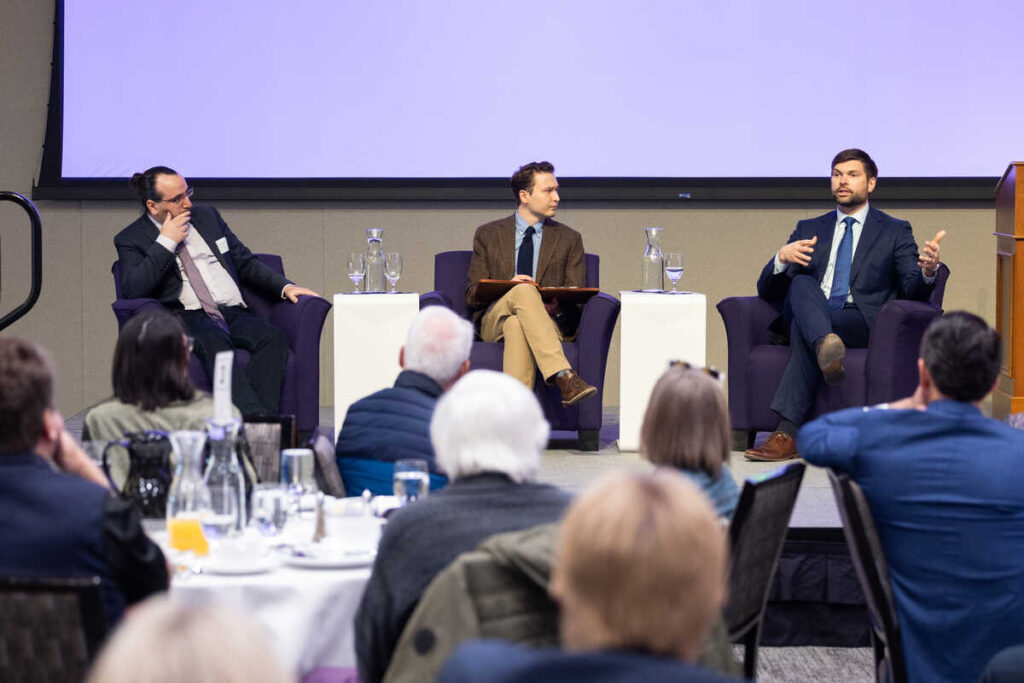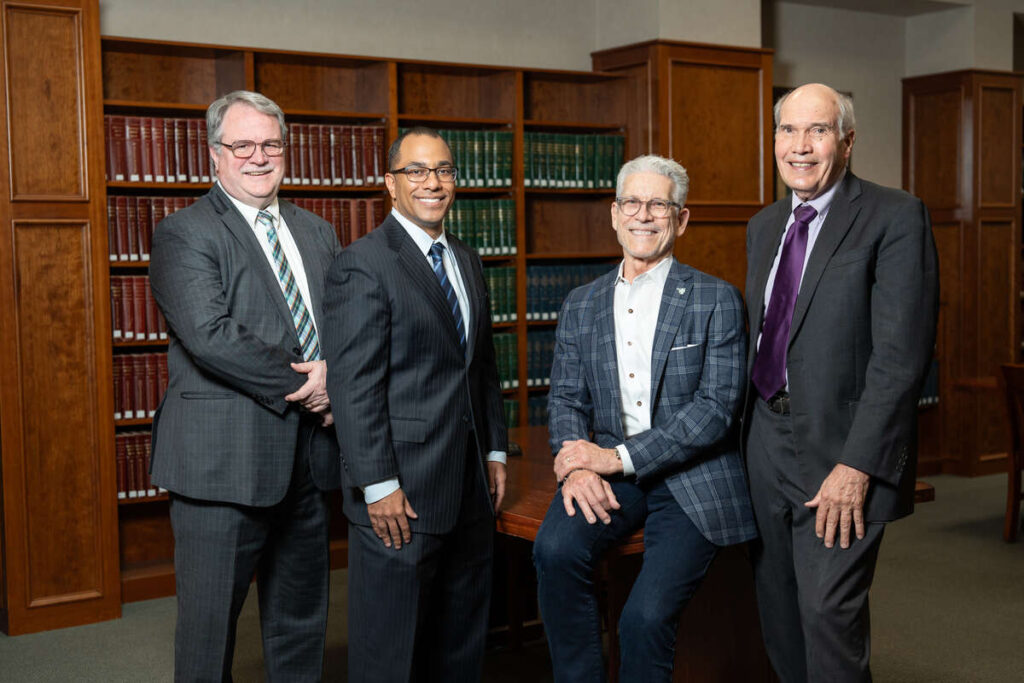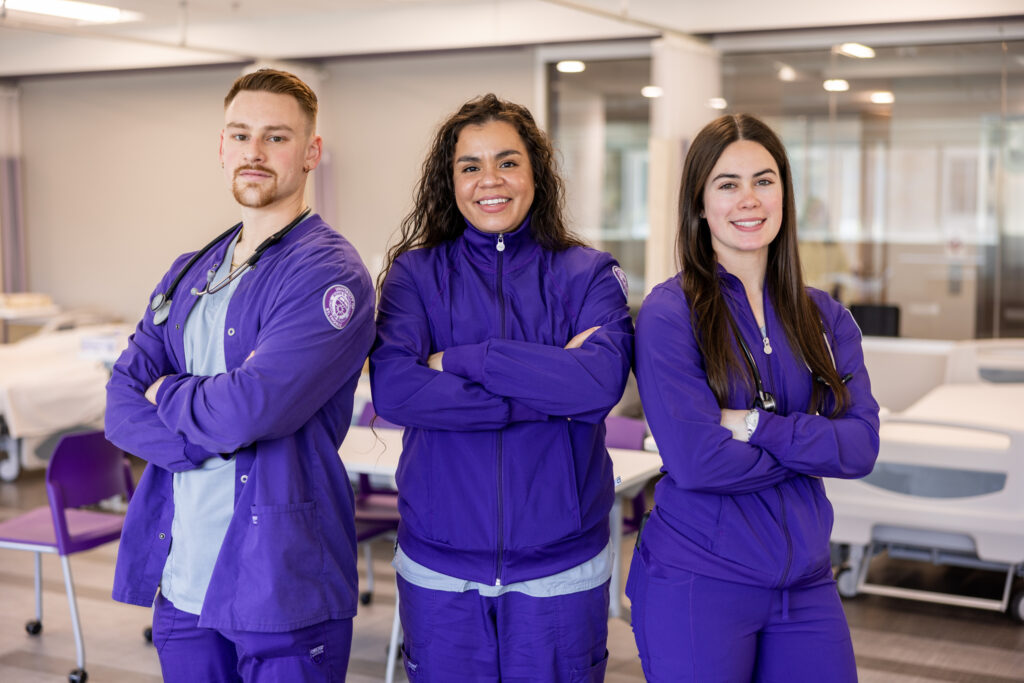When John Wolkerstorfer began taking classes at the Selim Center for Lifelong Learning after retiring in 2000, he never imagined that 24 years later he’d be one of the center’s longest-tenured students.
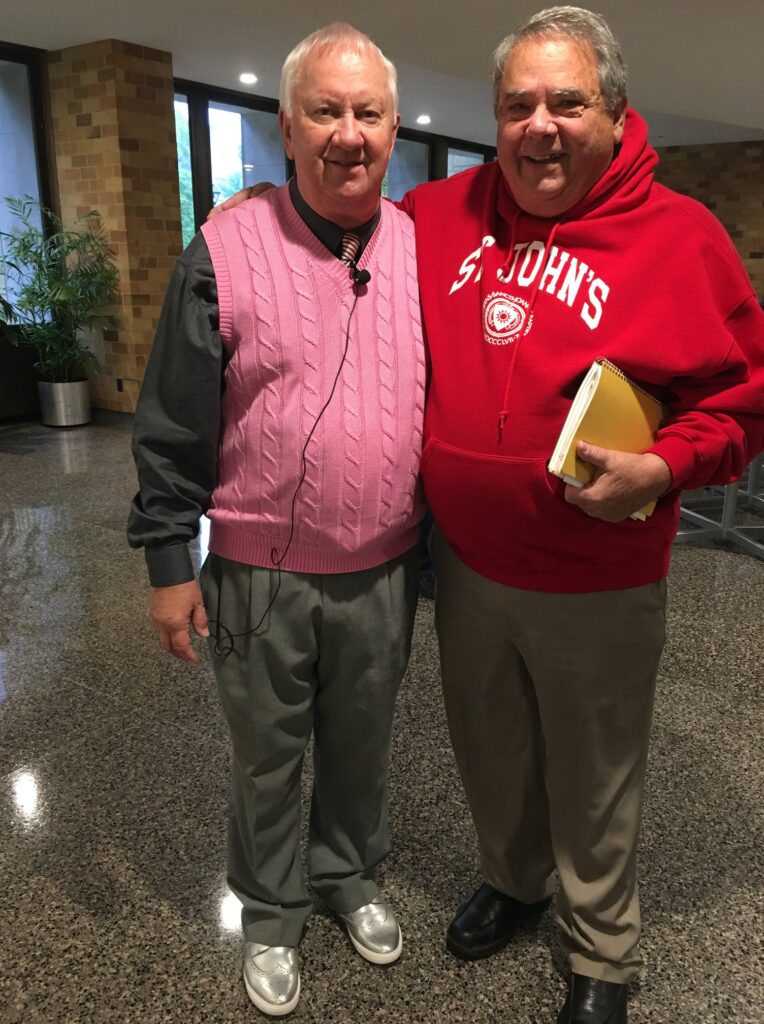
The Selim Center for Lifelong Learning, housed at the University of St. Thomas in Minnesota, is celebrating its 50th year of service to lifelong learners. Known for engaging its students in high quality educational programming, and also for intergenerational programming, the center has served more than 103,000 students since 1973.
Founded by longtime Economics Professor Dr. Mohamed “Mo” Selim, the first programs were made possible in part with funds from Title I of the Higher Education Act and consisted of 10 lectures on personal finances, operating under different names through the years. Earlier names were The Community College and Senior Citizens’ Programs and eventually the Center for Senior Citizens’ Education.
Together with its Go to College program (auditing of undergraduate classes), the center served 290 students during the 1973-74 school year, its first official year of operation as a center. As Dr. Selim noted in the first annual report, “The College of St. Thomas, through its Center for Senior Citizens’ Education, is committed to providing educational services for older people in the Twin Cities. Through these programs, the College hopes to make a contribution to the continued well-being of this community.”
Dr. Selim’s vision of creating a center dedicated to lifelong learning for older adults (40+) was recognized by St. Thomas when he received the Distinguished Service Award in 2004 upon his retirement. The award noted, “Your philosophy in establishing and maintaining these programs for three decades has been simple: to provide lifelong learning, to keep senior citizens in the mainstream of society and to inspire more collaboration between generations of students. ‘The young and the old can learn together,’ you have said.”
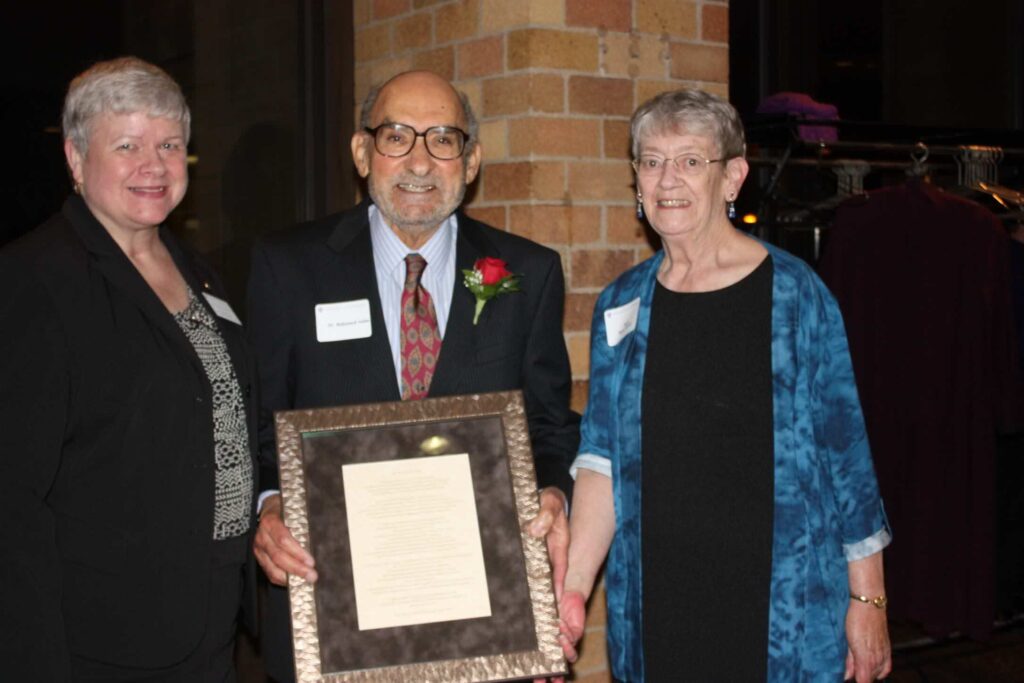
Selim’s vision evolved after his retirement to provide more than 200 hours of educational programming each school year, covering the full range of liberal arts education. Programming today is offered both in person on campus and via live Zoom simulcast, now serving students throughout the U.S. as well as three foreign countries.
“At St. Thomas, our mission compels us to take vocation seriously – supporting our students as they discern how their gifts, life experiences, and beliefs connect with the world’s needs,” said St. Thomas’ President Rob Vischer about the center regarding its 50th anniversary. “Vocation is a lifelong endeavor that does not end once we’ve chosen a career. I’m so grateful for the work of the Selim Center, which reminds us all that every person, at every stage of life, has important contributions to make to our world.”
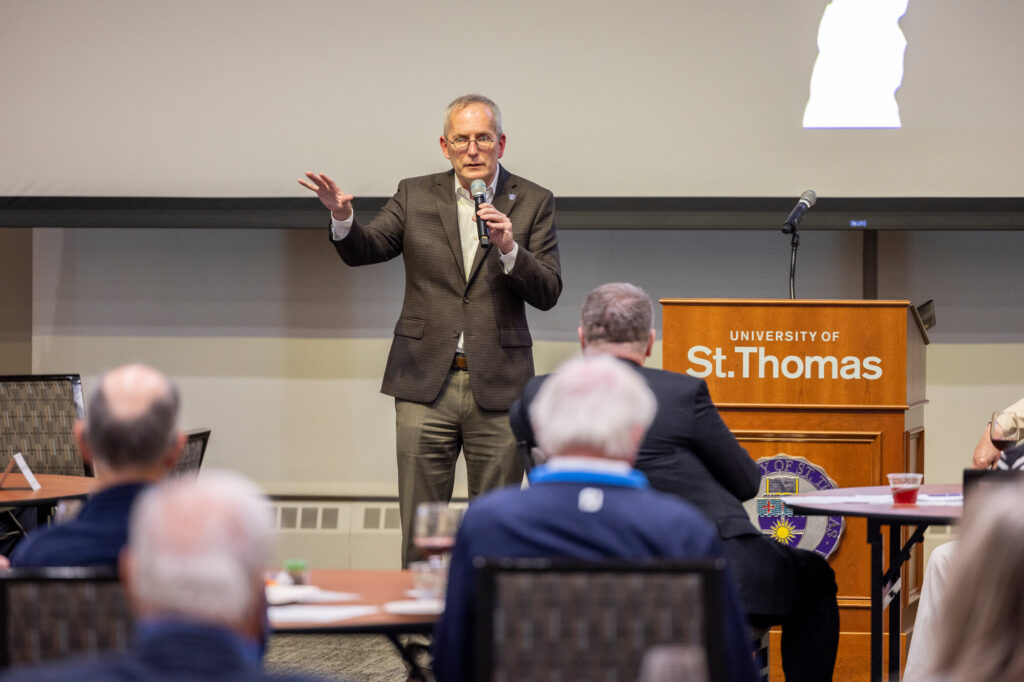
The center’s students are its lifeblood, and two are representative of the thousands who have taken part in its 50+ years of programming. Debbie Montgomery ’80, a community leader in St. Paul, and the first woman police officer in that city, as well as the first Black woman elected to the St. Paul City Council, is now taking some time for herself to engage in the center’s programming.
“I’m a lifelong learner; the subject matter is very informative and timely,” she said about the center. “The instructors are superb. It’s a great opportunity to have interchange with other students and to hear their interest in the subject matter. I can learn from both them and the instructors.”
Wolkerstorfer takes classes at the Selim Center by himself or with his wife, Marilyn, and also longtime friends, depending on the subject matter.
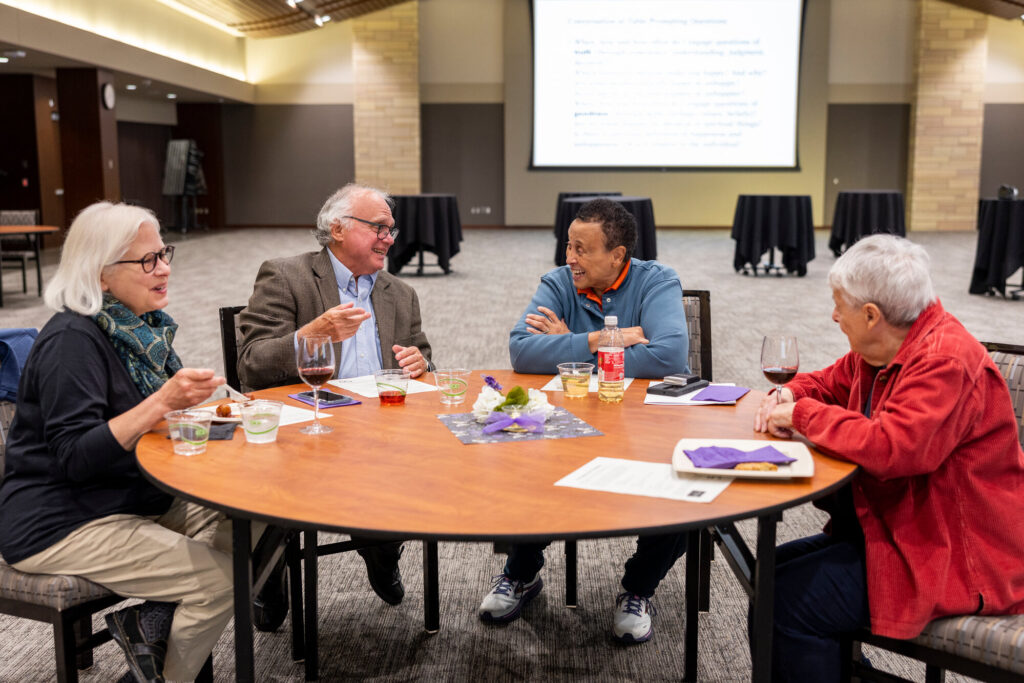
No matter the class, Wolkerstorfer can be seen taking notes, asking questions, and engaging with instructors and fellow students on the day’s material. Wolkerstorfer sums up his experience this way: “I have to learn something new every day!”
The students wouldn’t learn without the center’s faculty. The Selim Center’s instructors are also its lifeblood, and consistently excited to be part of its programming.
In a Newsroom interview upon his retirement from the St. Thomas, alumnus Father Michael Joncas, an instructor for the center since 1995, shared this about working with the center’s students.
“While I loved undergraduate and graduate teaching here and at other institutions of higher learning, I had the most fun teaching for the Selim Center for Lifelong Learning,” Joncas said. “Those who came to the courses came because they were interested in the topic (not because it was a requirement), they came with life experience that led to fascinating insights and discussions on the topics we examined, and that there were no exams or papers to be assigned and graded since the participants were there for the sheer joy of learning.”
Dr. Shaherzad “Shaz” Ahmadi, one of the center’s newer instructors, shared that as a professor in the Department of History, “I have had the pleasure of working with Selim Center students both in programs crafted for the center as well as in my undergraduate courses. I have seen firsthand the invaluable connections between learners of different generations and feel fortunate to have benefited from the professional expertise of students in the Selim Center in my own curricular development.
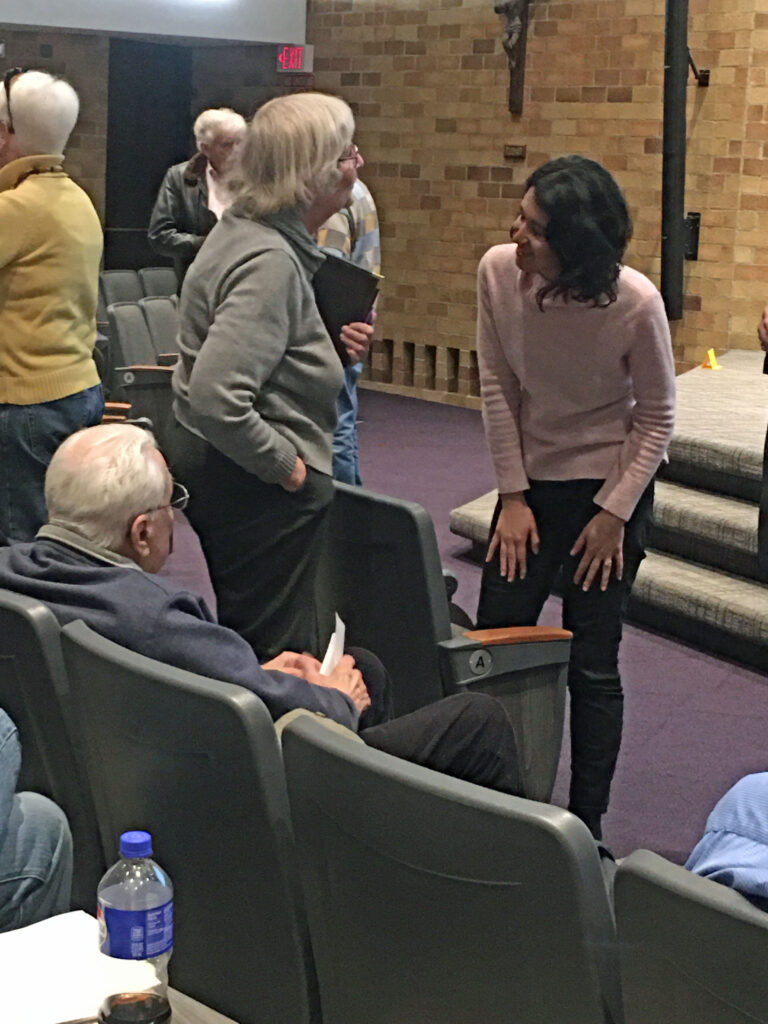
“The service offered by the Selim Center represents not only a valuable opportunity for those directly enrolled in and teaching the courses, but also enriches the intellectual life of the University of St. Thomas.”
The Selim Center has evolved through its first half-century of service and will continue to do so as it moves into its next half-century. That continuing evolution includes the addition of study travel programs both domestically and internationally, (think “study abroad for adult learners”), and the development of new strategies for expanding intergenerational activities.
The center’s current director, Bob Shoemake, sees these new offerings as a means for continuing to fulfill Dr. Selim’s vision.
“As the number of elders grows, not only in Minnesota but globally, finding new ways for young and old to learn together, for learning to continue for an entire lifetime, and for the gifts, talents and experiences of elders to be used to contribute to the common good are critical tasks for this center,” he said.
